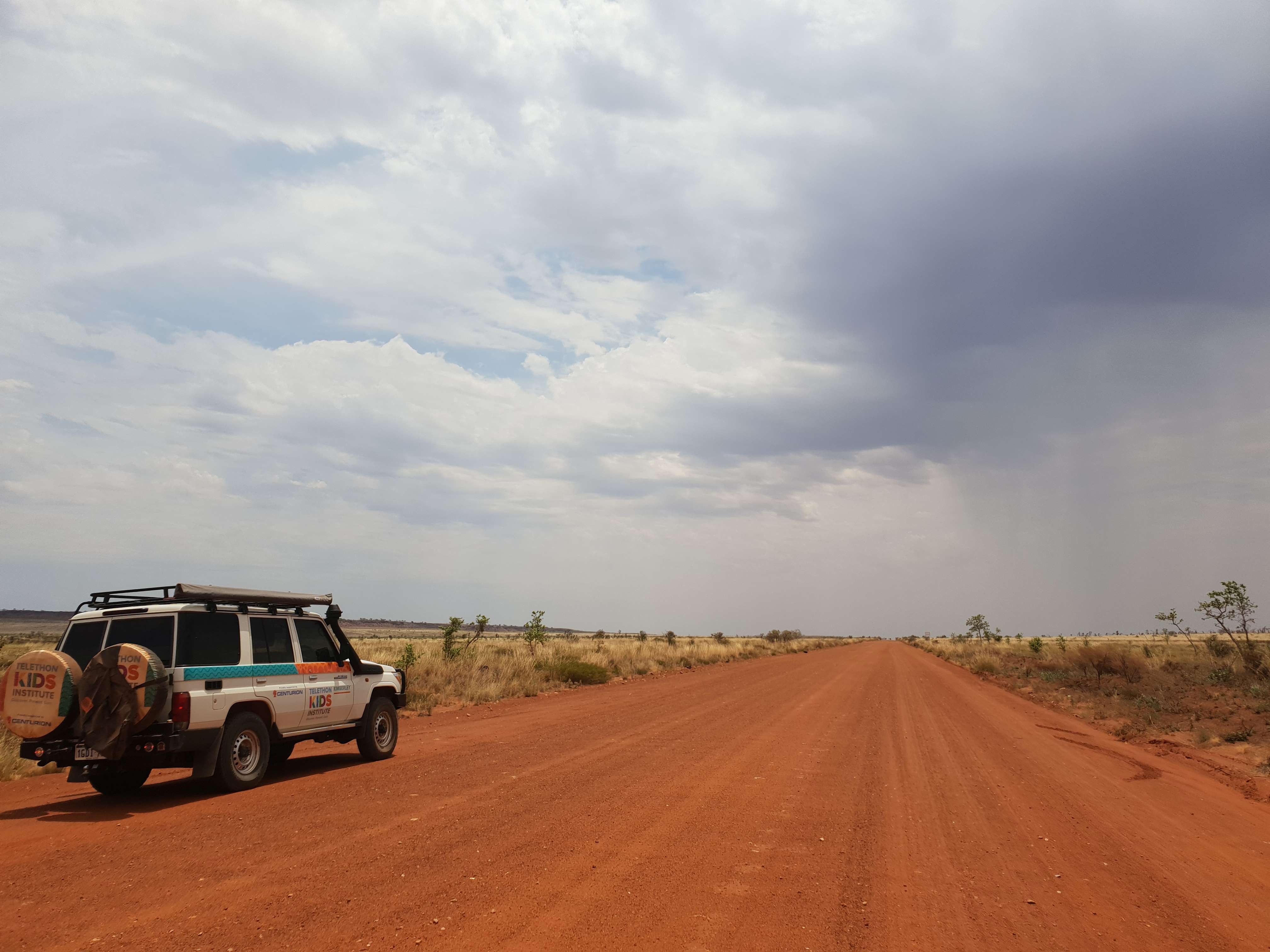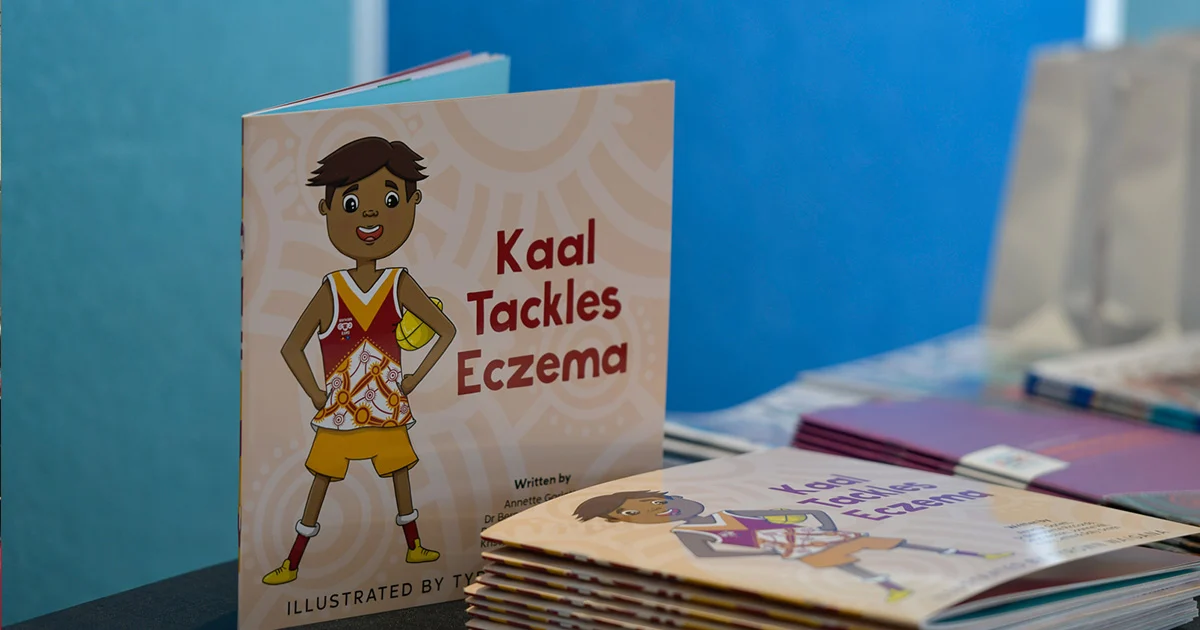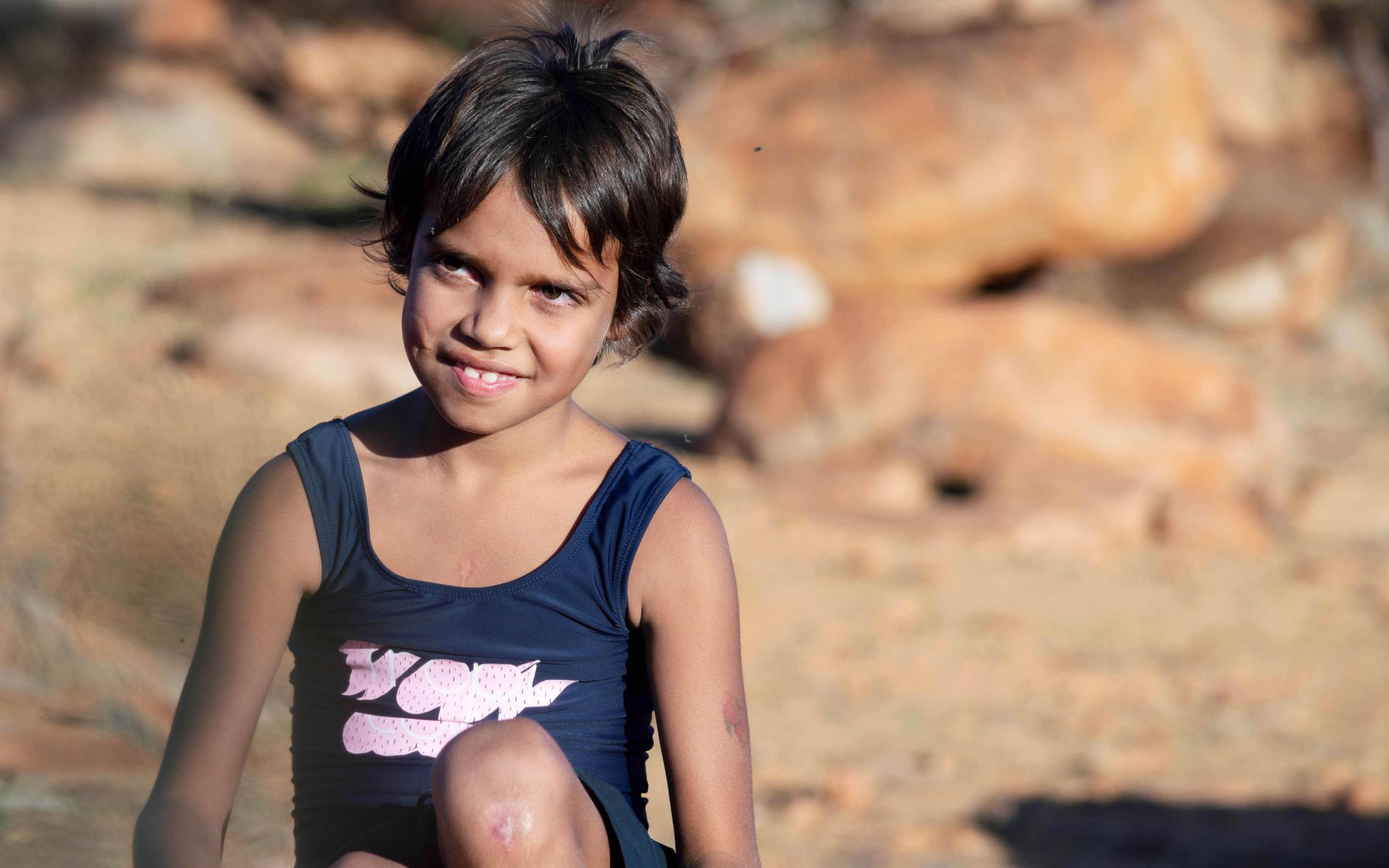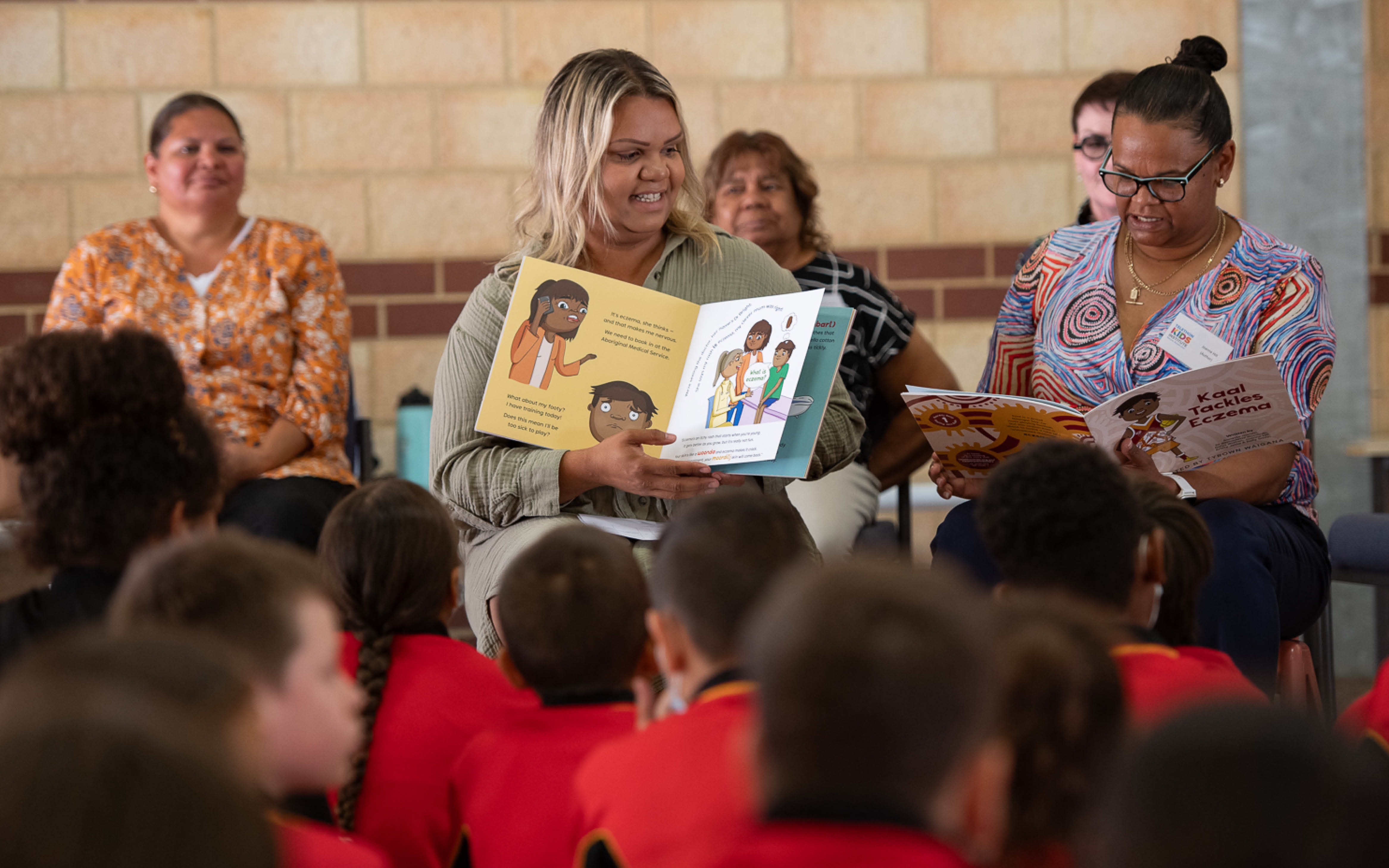The skin, our body’s first line of defence, is crucial for maintaining good overall health.
Globally, more than 162 million children suffer from skin infections, but the impact is particularly severe for Aboriginal children, especially those in remote communities where nearly half experience skin sores – a world-leading rate.
Recurring, highly contagious skin infections such as impetigo and scabies pose significant long-term health risks to children. Itchy skin conditions, including scabies, tinea, headlice and eczema, create openings for bacteria like Streptococcus pyogenes (Strep A) and Staphylococcus aureus bacteria. This can cause painful skin sores and boils and, if left untreated, lead to serious health complications including sepsis, bone and joint infections, and potentially life-threatening conditions like Rheumatic Fever (ARF), Rheumatic Heart Disease (RHD), and Acute post-streptococcal glomerulonephritis (APSGN).
Beyond physical health, these infections can cause shame and stigma, loss of sleep, poor concentration at school and cross-infection with friends and family.
Here at The Kids Research Institute Australia, we are committed to achieving healthy skin for all children, but particularly Aboriginal children who face a disproportionately high burden from skin infections.
Skin infections in Children
What is eczema?
Eczema is a common skin problem that causes a rough, red, itchy rash on the skin. It often starts in the first months of life and, if left untreated, keeps coming back. Eczema is the most prevalent inflammatory skin conditions in children globally and cases are on the rise, particularly in urban areas. Eczema and bacterial infections are linked: poorly controlled eczema creates vulnerability to recurring infections, while secondary infections contribute to more severe disease. Eczema significantly impacts a child’s general health, sleep and school performance, reducing their and their family’s quality of life.
How is eczema treated?
Treating eczema involves hydrating the skin with thick moisturisers, reducing inflammation and itch with prescription creams, and addressing severe cases with antihistamines, light therapy, or oral medications. Lifestyle adjustments like avoiding triggers and using gentle skin care are also important. If an infection develops, a doctor may prescribe specific medication.
What is impetigo?
Also known as school sores or skin sores, impetigo is a highly contagious type of skin infection caused by the Staphylococcus or Streptococcus bacteria. Impetigo is especially dangerous to newborn babies.
More common in the hotter months, the infection is easily spread and is characterised by inflamed blisters that pop, weep and form crusts.
The sores can appear anywhere on the body but most often near the mouth and nose or on the arms and legs. Children with a long-term skin condition, such as eczema, are also more likely to get impetigo. Other things that can lead to skin sores are insect bites, minor trauma, and scabies.
How is impetigo treated?
Children should be isolated for 24 hours following treatment with antibiotic creams, syrups or tablets begins. Covering sores with a waterproof dressing or crepe bandage can deter scratching and prevent the further spread of infection to other parts of the body or other people. Infection can also be spread by touching contaminated clothing, towels and linen, so these should be washed frequently.
What is scabies?
Scabies is a skin infestation caused by mites which burrow into the skin to lay their eggs. It leads to red bumps or blisters on the skin that are very itchy. If scratched, it can allow a strain of Streptococcus or Staphylococcus bacterium to cause infection. Untreated, that infection can lead to rheumatic fever and heart disease, kidney damage, bone and joint infections, or blood poisoning.
How is scabies treated?
Scabies is generally spread by physical contact and is diagnosed by a doctor or nurse. Treatment involves applying a cream to the entire body, which is left on overnight and washed off the next morning. It is very important that all members of the household are treated at the same time to prevent further infestations.
Antibiotics may also be required if the scabies lesion has crusts or pus, as the itchy spots have developed into skin sores.
See your GP if you suspect your child has impetigo or scabies.
Our research impact
Impact on Aboriginal communities
Almost half of all Aboriginal children in remote areas are affected by skin sores at any one time, with household overcrowding a major factor in its spread. It is estimated nearly 85 per cent of Aboriginal children are treated for impetigo before their first birthday.
Scabies is also endemic in some remote Aboriginal communities, with up to one-third of children affected. Not only itchy and uncomfortable for the child, skin infections can lead to life-threatening conditions such kidney disease, rheumatic heart disease, bone infections and blood poisoning.
With skin infections accounting for a big proportion of attendances at regional clinics, particularly in children under five years, researchers from The Kids are looking for ways to tackle these high rates of impetigo and scabies.
These include investigating the effectiveness of treating skin sores with antibiotic capsules and syrup rather than painful penicillin injections, and collaborating with health services in the Kimberley region to better recognise and treat skin infections.

The SToP Trial – a five-year study aimed at ‘Seeing, Treating and Preventing’ painful skin sores and scabies, conducted in partnership with nine remote Aboriginal communities in Western Australia's Kimberley region – achieved a remarkable 50% reduction in skin infection rates among children through regular school-based skin checks.

In close partnership with Aboriginal Elders and community members in Western Australia's south-west, we created ‘Kaal Tackles Eczema’, a children’s book to help Aboriginal families manage eczema. Our research showed a high prevalence and need for culturally relevant resources. The book uses Noongar language and art to educate and reduce infections, and is available online and in schools.


